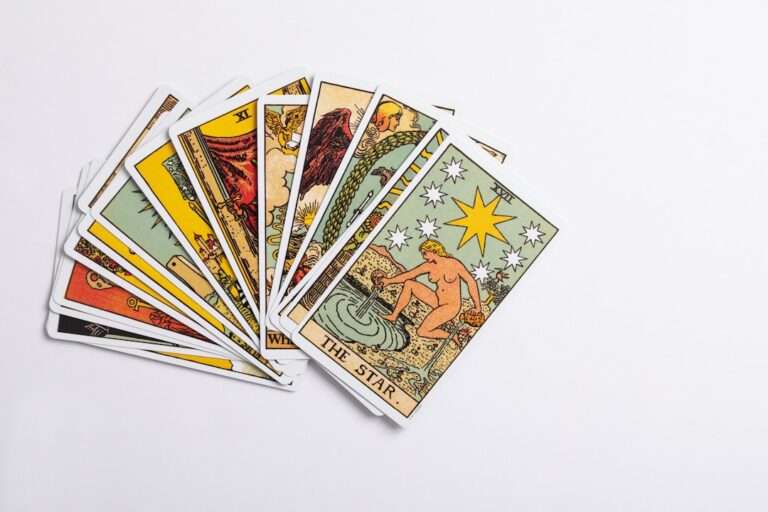Numbers in Symbolism – The Ultimate Guide

Numbers have played a significant role in various cultures and belief systems throughout history. From ancient civilizations to modern-day practices, numbers have been used to convey deeper meanings and symbolism. In this blog post, we will explore the spiritual, mythological, religious, and artistic significance of numbers. We will also delve into the practical applications of numerology for personal growth and self-discovery. Finally, we will discuss how numbers are shaping the world we live in and the future of numerology.
The Spiritual Meaning of Numbers: Exploring the Mystical Side of Numerology
Numerology is the study of numbers and their spiritual significance. It is believed that each number carries a unique vibration and energy that can influence our lives. In numerology, numbers are often reduced to a single digit by adding up their individual digits. For example, the number 23 would be reduced to 5 (2 + 3 = 5). Each number has its own meaning and symbolism.
The number 1 represents new beginnings, independence, and leadership. It is associated with creativity and individuality. The number 2 symbolizes balance, harmony, and cooperation. It represents partnerships and relationships. The number 3 is often associated with creativity, self-expression, and communication. It represents joy and optimism.
Numerology is used in various spiritual practices such as astrology, tarot reading, and meditation. It can provide insights into our personality traits, life path, and future possibilities. By understanding the spiritual meaning of numbers, we can gain a deeper understanding of ourselves and the world around us.
The Role of Numbers in Mythology and Folklore: Tales and Legends from Around the World
Numbers have been used in myths and folklore from different cultures to convey symbolic meanings. In many myths, certain numbers are believed to have special powers or significance. For example, in Norse mythology, the number 9 is considered sacred and represents completion and perfection. The world tree, Yggdrasil, has 9 realms, and Odin hung from the tree for 9 days to gain wisdom.
In Chinese mythology, the number 8 is considered lucky and represents wealth and prosperity. The Beijing Olympics in 2008 started on August 8th at 8:08 pm because the number 8 is believed to bring good fortune. In Hindu mythology, the number 108 is considered sacred and is often used in prayers and rituals. It is believed to represent the universe and the divine.
The symbolism behind these numbers in myths and folklore often reflects cultural beliefs and values. They can represent cosmic order, spiritual enlightenment, or the cycles of life and death. By studying these stories, we can gain insights into the cultural significance of numbers.
The Symbolism of Numbers in Religion: From Christianity to Hinduism
Numbers play a significant role in different religions around the world. In Christianity, the number 3 represents the Holy Trinity (Father, Son, and Holy Spirit) and is associated with divine perfection. The number 7 is considered sacred and represents completion and spiritual fulfillment. In Judaism, the number 18 is associated with good luck and prosperity. It is often used in celebrations such as weddings and bar mitzvahs.
In Islam, the number 99 represents the names of Allah and is considered sacred. The number 5 is also significant as it represents the five pillars of Islam. In Hinduism, the number 108 is considered sacred and is often used in prayers and meditation. It is believed to represent the universe and the divine.
Numbers in religion often have deep symbolic meanings that reflect core beliefs and teachings. They can represent divine attributes, spiritual principles, or sacred rituals. By understanding the numerical symbolism in different religions, we can gain a deeper appreciation for their teachings.
The Numerical Significance of Colors: How Colors and Numbers are Connected
Colors and numbers are often connected in symbolism. Each color carries its own vibration and energy, and when combined with numbers, they can convey deeper meanings. For example, the color red is associated with passion, energy, and action. When combined with the number 1, it can represent new beginnings and taking initiative.
The color blue is often associated with calmness, tranquility, and communication. When combined with the number 2, it can represent harmony and cooperation in relationships. The color yellow is associated with joy, optimism, and creativity. When combined with the number 3, it can represent self-expression and communication.
By understanding the connection between colors and numbers, we can use them to enhance our daily lives. We can choose colors that align with our intentions and goals to create a harmonious environment.
The Power of Numerical Sequences: The Meaning Behind Repeating Numbers

Repeating numbers are numbers that appear in a sequence, such as 111, 222, or 333. These numbers are believed to carry a special message or significance. Many people believe that when they see repeating numbers, it is a sign from the universe or their higher self.
The meaning behind repeating numbers can vary depending on the sequence. For example, seeing 111 often represents alignment with your higher purpose and spiritual awakening. It is a reminder to stay positive and focused on your goals. Seeing 222 represents balance and harmony in relationships and partnerships. It is a sign that you are on the right path.
Repeating numbers can provide guidance and reassurance in our lives. By paying attention to these numbers and reflecting on their meanings, we can gain insights into our current situation and make informed decisions.
The Secret Language of Numbers: Decoding Numerical Patterns and Hidden Meanings
Numerical patterns and hidden meanings are often used in different contexts to convey deeper messages. For example, in the Fibonacci sequence, each number is the sum of the two preceding numbers (1, 1, 2, 3, 5, 8, 13, etc.). This sequence is found in nature and is believed to represent growth and expansion.
In sacred geometry, certain numerical patterns are used to create harmonious and balanced designs. The Flower of Life, for example, is a geometric pattern made up of overlapping circles. It is believed to represent the interconnectedness of all living beings.
By decoding these numerical patterns and hidden meanings, we can gain a deeper understanding of the world around us. We can see the underlying order and harmony that exists in nature and in ourselves.
The Numerical Symbolism in Art and Literature: From the Renaissance to Modern Times
Numbers have been used in art and literature throughout history to convey symbolic meanings. In the Renaissance period, artists such as Leonardo da Vinci used mathematical principles and proportions to create balanced and harmonious compositions. The golden ratio, for example, is a mathematical ratio that is believed to represent beauty and perfection.
In literature, numbers are often used to convey deeper meanings and symbolism. In George Orwell’s novel “1984,” the number 1984 represents a dystopian future where individuality and freedom are suppressed. In Gabriel Garcia Marquez’s novel “One Hundred Years of Solitude,” the number 100 represents the cyclical nature of time and the repetition of history.
By studying the numerical symbolism in art and literature, we can gain insights into the artist’s intentions and the deeper meanings behind their works.
The Practical Applications of Numerology: Using Numbers for Personal Growth and Self-Discovery
Numerology can be used as a tool for personal growth and self-discovery. By understanding our personal numerology chart, which is based on our birth date and name, we can gain insights into our personality traits, strengths, and weaknesses. We can also gain a deeper understanding of our life path and purpose.
Numerology can also be used to make informed decisions and set goals. By understanding the vibrations and energies associated with different numbers, we can choose numbers that align with our intentions and goals. For example, if we want to attract abundance and prosperity, we can choose the number 8, which represents wealth and success.
By using numerology for personal growth and self-discovery, we can gain a deeper understanding of ourselves and make choices that align with our true purpose.
The Future of Numerology: How Numbers are Shaping the World We Live In
Numbers are shaping the world we live in more than ever before. In the digital age, numbers are used to measure and quantify almost every aspect of our lives. From social media analytics to financial markets, numbers play a crucial role in decision-making and understanding trends.
In the field of technology, numbers are used in algorithms and data analysis to solve complex problems and make predictions. Artificial intelligence relies on numerical patterns and algorithms to learn and make decisions.
In the future, numerology may continue to evolve as we find new ways to use numbers to understand ourselves and the world around us. As technology advances, we may discover new numerical patterns and hidden meanings that can enhance our lives.
Recap of the Importance of Numbers in Symbolism
Numbers have played a significant role in various cultures, belief systems, art forms, and practical applications throughout history. They carry deep symbolic meanings that can provide insights into ourselves and the world around us. By understanding the spiritual, mythological, religious, artistic, and practical significance of numbers, we can gain a deeper appreciation for their power and influence. Whether used for personal growth or to shape the world we live in, numbers continue to hold a special place in symbolism.
If you’re fascinated by the symbolism of numbers, you might also be interested in exploring the symbolism of the moon. The moon has long been associated with various meanings and interpretations across different cultures and belief systems. From representing femininity and intuition to symbolizing cycles and transformation, the moon holds a significant place in symbolism. To delve deeper into this topic, check out this insightful article on “What Does the Moon Symbolize?” at Symbolism Hub.
FAQs
What is symbolism?
Symbolism is the use of symbols to represent ideas or qualities.
What are numbers in symbolism?
Numbers in symbolism are numbers that are used to represent ideas or qualities.
What is the significance of numbers in symbolism?
Numbers in symbolism have different meanings and significance depending on the culture, religion, or belief system they are associated with.
What are some examples of numbers in symbolism?
Some examples of numbers in symbolism include the number 7 representing perfection or completeness in Christianity, the number 8 representing prosperity and good fortune in Chinese culture, and the number 13 representing bad luck in Western culture.
How are numbers used in religious symbolism?
Numbers are often used in religious symbolism to represent important concepts or ideas. For example, the number 3 is significant in Christianity as it represents the Holy Trinity.
What is numerology?
Numerology is the study of the mystical or divine significance of numbers.
How is numerology used in symbolism?
Numerology is often used in symbolism to interpret the meaning of numbers and their significance in different cultures and belief systems.
What are some common numerology systems?
Some common numerology systems include the Pythagorean system, the Chaldean system, and the Kabbalistic system.
What is the Pythagorean numerology system?
The Pythagorean numerology system is based on the idea that each number has a unique vibration and energy that can be used to interpret its meaning.
What is the Chaldean numerology system?
The Chaldean numerology system is based on the idea that each number has a unique vibration and energy that can be used to interpret its meaning. It is believed to be one of the oldest numerology systems.
What is the Kabbalistic numerology system?
The Kabbalistic numerology system is based on the idea that each number has a unique spiritual meaning and significance. It is often used in Jewish mysticism.





